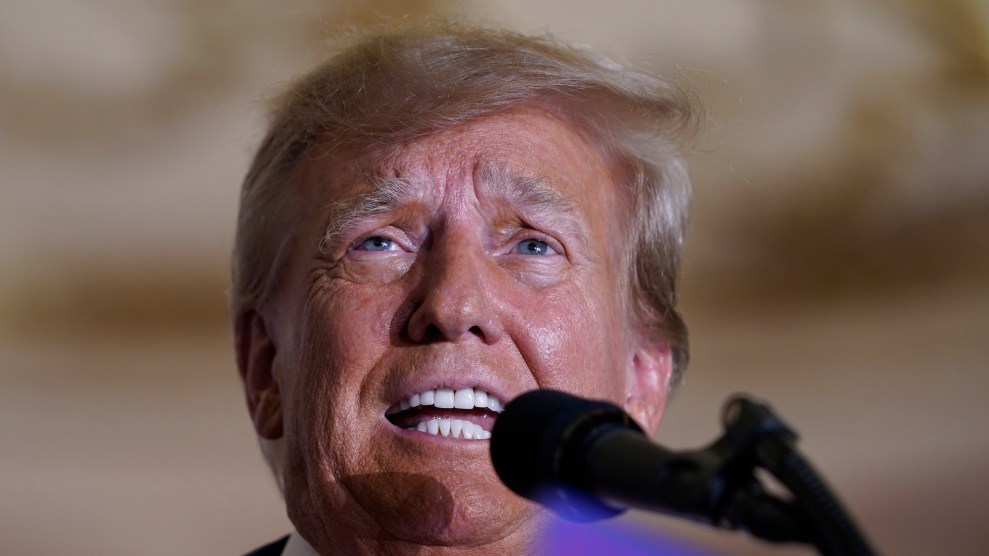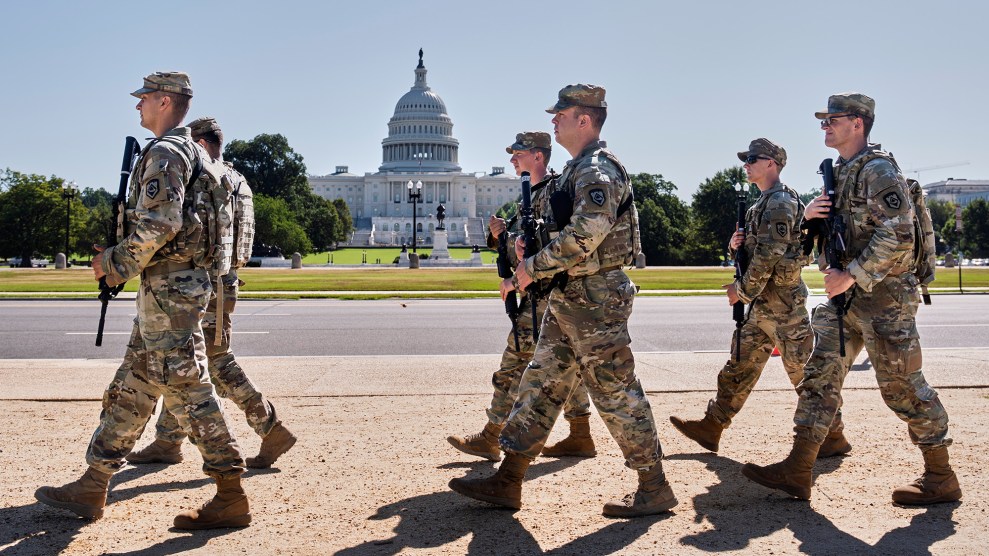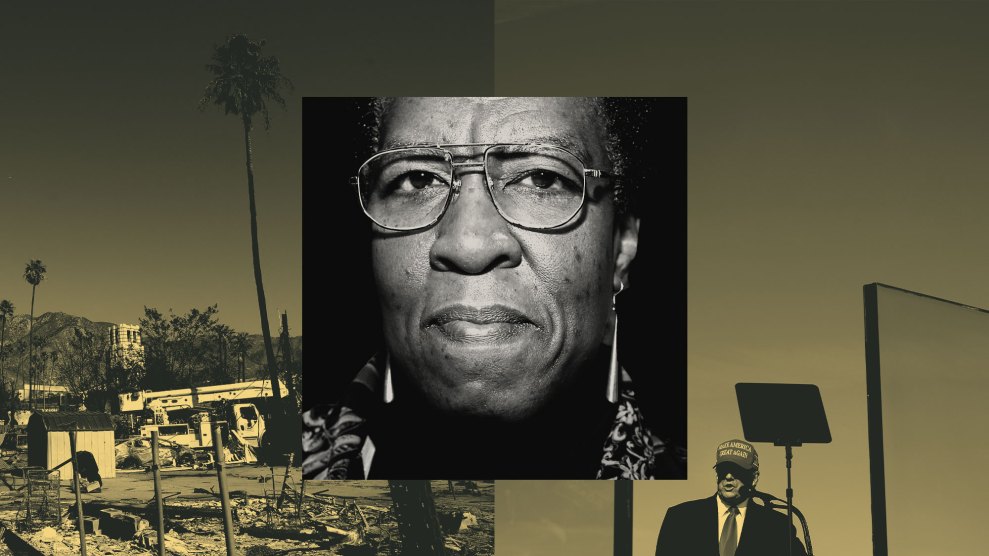
AP Photo/Evan Vucci, File
Donald Trump was summoned to appear Tuesday before a Manhattan judge, who warned the former president that he could face additional legal trouble if he publicly rants about the evidence against him in his criminal fraud case—a recurring problem during the E. Jean Carroll sexual assault lawsuit earlier this month. Trump’s virtual appearance was brief, and New York judge Juan Merchan spoke to him gently. But the message was clear: Do not try to mess with this trial.
The Tuesday hearing came one day after Carroll—who recently won a federal civil judgment against Trump for sexual assault and defamation—sought additional damages from Trump over comments he made about her on CNN following that verdict. And on Tuesday morning, hours before his lecture from Merchan, Trump took to his social media platform, Truth Social, to repeat his attacks on Carroll and to complain that the sexual assault trial had been unfair.
Carroll already had a second defamation suit pending against Trump. Filed back in 2019, that one has lingered in appellate courts thanks to a dispute over whether the fact that Trump was president at the time shielded him from liability. On Monday, Carroll’s attorneys revised their arguments in that case to include Trump’s comments from the May 10 CNN town hall, when Trump definitely was not serving as president. Carroll’s attorneys also asked that Trump be ordered to pay $10 million for his continued defamatory statements.
Since Trump appeared on CNN, Carroll has been deluged with angry and threatening messages, her attorneys stated.
“These and other similar messages are exactly what Trump intended,” Carroll’s revised lawsuit reads. “Trump used a national platform to demean and mock Carroll. He egged on a laughing audience as he made light of his violent sexual assault, called Carroll names, implied that Carroll was asking to be assaulted, and dismissed the jury’s verdict vindicating Carroll.”
The additional damages would be necessary to teach Trump a lesson he clearly didn’t learn by losing the trial, her attorneys wrote. “Trump’s defamatory statements post-verdict show the depth of his malice toward Carroll since it is hard to imagine defamatory conduct that could possibly be more motivated by hatred, ill will, or spite,” they argued. “This conduct supports a very substantial punitive damages award in Carroll’s favor both to punish Trump, to deter him from engaging in further defamation, and to deter others from doing the same.”
Having already lost a trial in which jurors voted unanimously that Trump had indeed sexually assaulted Carroll in 1996 in a dressing room at the Bergdorf Goodman department store, a follow-up defamation case could be tough for Trump to win. And with his Tuesday morning “truths,” Trump appeared willing to make his legal situation even more difficult.
Tuesday’s warning from Merchan in the New York state criminal case was not directly linked to Trump’s problems in the Carroll lawsuits, but they are not entirely unrelated. The hearing—in which Trump appeared via videoconference from Mar-a-Lago, where he sat in front of American flags, accompanied by one of his attorneys—was no mere scolding. Merchan wanted to speak to Trump directly about a protective order Merchan had entered earlier this month, which specifically bars Trump from making any public statements (including online) based on any of the evidence that Manhattan prosecutors have turned over in their case against him.
Prosecutors asked for the order because Trump had been posting on Truth Social and giving political speeches in which he criticized Manhattan District Attorney Alvin Bragg, referring to him as “an animal”; had accused Merchan of being biased; and had mocked the whole case against him as a hoax. On Tuesday, Trump sat quietly, occasionally gesturing with his hands and talking to his lawyer, off microphone. Trump’s attorney, Todd Blanche, told Merchan that he had discussed the proposed order at length with his client, and he said Trump understood. Blanche said that he was still protesting the order, arguing that Trump, as “the leading contender” for the White House in 2024, was concerned about not being able to talk about the case.
Merchan noted that the order was not a gag order—Trump is allowed to speak about the case, but he isn’t allowed to use any materials produced as evidence to do so. Merchan said that his intention is not to interfere with the presidential campaign.
“I have explained to him that that is not your honor’s intention…and that this is not a gag order,” Blanche told Merchan.
Merchan also set a trial date for the case—March 25, 2024—and warned that Trump should not make other plans for that timeframe, an admonishment that a muted Trump appeared to be unhappy with. Trump shook his head in disagreement but refrained from making any formal protest against.

















